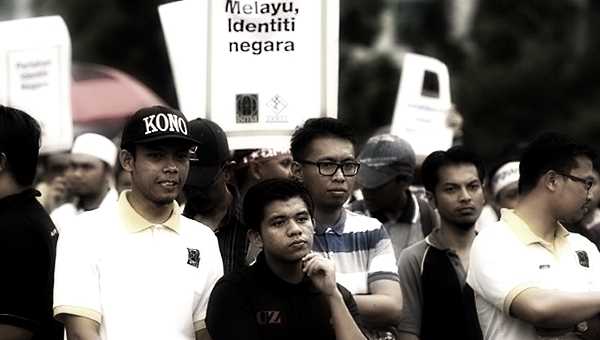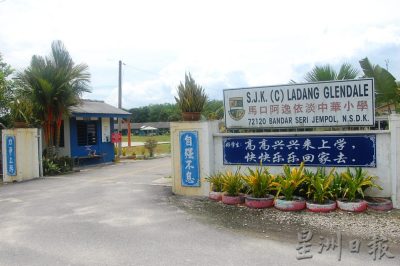By Wong Tai-Chee
It impressed me a lot after reading the article "What hope for Malaysia?" by Prof Dr. Mohd Tajuddin Mohd Rasdi.
In the article, Prof Tajuddin expressed his utter desperation for this country's future seeing that after 60 years of independence — from Alliance, to BN and now Perikatan Nasional, administrations over the decades have been solely dependent on the support of one single community and governing with unmistakably racist policies. And he couldn't be more shocked that the country's racist policies have been widely accepted by the Malay intellectuals as well as respected religious clerics.
Under such policies, radical Islamism has been made a potent weapon by the conservatives to oppress liberal thinking and interfere non-Muslims' secular ways of living.
Additionally, the conservatives choose to ignore the principles behind the country's secular governance, and have dismissed corruption, murder and kidnapping committed by political leaders as minor misdemeanors. In the pretext of safeguarding the honor of the Islamic faith, they condone crimes of massacre in the Middle East perpetrated by Muslims from around the world. As a result, they have thrown the Malaysian Islamic society into an "abyss of bigotry, ignorance and arrogance that will divide societies and has nowhere to go but serious social conflicts."
As a Malay, Prof Tajuddin naturally has established very close contacts with the Malay society and knows far better than us about Malay intellectuals.
As a constituent of the local Chinese society, what interests me most is why so many highly educated Malays would support racism.
As for those without a formal education, it is understandable that out of ignorance some might be fooled by politicians into upholding Malay nationalism, believing that it is logical to redistribute wealth taken away from the local Chinese and Indians, and even the conviction that special rights and privileges accorded to the bumiputras are their birthright.
This is because most of the ignorant Malays are also the helpless and underprivileged lot in our midst. They would even feel comfortable with the empty promises made by the politicians, and are willing to continue to believe in the utterances of the racists.
But weirdly, even well educated Malays fundamentally hold more or less consistent attitude as the underprivileged Malays.
The number of highly educated Malays has jumped dramatically over the past six decades since Independence, far more than the sum of Chinese and Indians. Unfortunately, there are very few among the multitude of Malay intellectuals who are like Prof Tajuddin, someone with a deep social conscience, or what we call public intellectual. Why?
Public intellectuals are people with powerful independent thinking and some academic and professional background. They are fearless in speaking up against injustices in the society as well as inappropriate government policies.
The majority of Malay intellectuals we see either join political parties to secure for themselves lucrative government posts, or keep mum over corrupt social practices and not offer any substantial reform plans.
To the lower segment of the Malay society, even though these intellectuals do feel for them, they are reluctant to shoulder their social responsibility of advancing the people's wisdom and guiding the public consensus in building a more rational society.
These people have actually sensed that the government is practicing racism and cronyism and customarily involved in corruption, but they are unwilling to ponder over the government's misdeeds and act accordingly for the simple reason they are themselves the beneficiaries of such irregularities, too. They would rather wrong other people than letting others wrong them!
While these Malay intellectuals may embrace social justice deep inside them, for the sake of their own benefits or for the "common destiny of the Malay race", few would stand up and act. Could this constitute a crime? From the legal point of view, they have not committed any crime and their psychological quality is well and normal. They have the capability to think wisely, but not the determination to make the effort to seek breakthroughs. They are enjoying the perks provided by the government within the framework of the existing system, allowing the national ideology to abduct their own, depriving them of the courage to act.
Moreover, the whole system does not actually value the talent. Even if you are of average caliber, it won't be problem to get a very rewarding GLC senior position so long you remain loyal and have some sort of "mass base".
These Malay intellectuals have opted not to be public intellectuals because they know public intellectuals will likely be alienated by their own community and be misrepresented as hypocrites harboring untold motives behind their seemingly righteous deeds.
What Prof Tajuddin was trying to hint in his article was that many Malay intellectuals have acted against their social conscience, preparing that kindling for the school, university and religious education curriculum, which politicians can light up any time with the flame of their hatred and racial mistrust, threatening the peace of the Malaysian society.
He also called upon civil society idealists to train and inspire some 300 elite Malaysians of all races below the age of 40 into a powerful band of "ukhwah" or brotherhood, who will receive a new curriculum of education of a shared history, a shared spirituality and a shared economic construct. They will also be trained in politics and organizational management as well as writing, speaking and analyzing, so that they can set up a new political party acceptable to all Malaysians.
I truthfully believe this proposal is very meaningful and worthy of our firm support.
It's my wish that Prof Tajuddin can accomplish what he aspires, and contribute positively towards training new generation public intellectuals of all races who will battle racism in the country in future.
(Wong Tai-Chee has his B.A and M.A degrees in Urban and Regional Planning from the University of Paris, and earned his PhD in Human Geography from the Australian National University. After teaching 20 years in Nanyang Technological University, Singapore, he retired in 2013. He then worked as Distinguished Professor for two years at Guizhou University of Finance and Economics, China, and as Dean and Professor at the Southern University College, Johor until the end of 2018. He was Visiting Professor to University of Paris (Sorbonne IV), Visiting Fellow to Pekin University, Tokyo University and University of Western Australia. His main research interests are in urban and economic issues, and more recently on Malaysian politics. Besides his 15 self-authored and edited book volumes, he has written over 100 academic articles and published widely in international journals.)

ADVERTISEMENT
ADVERTISEMENT


































